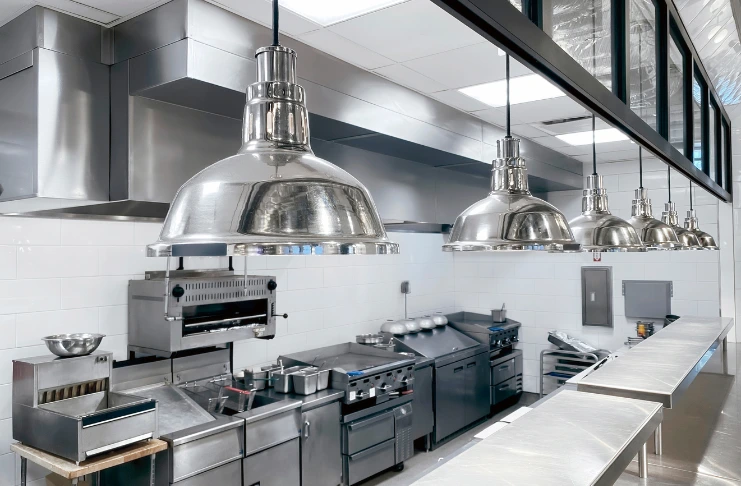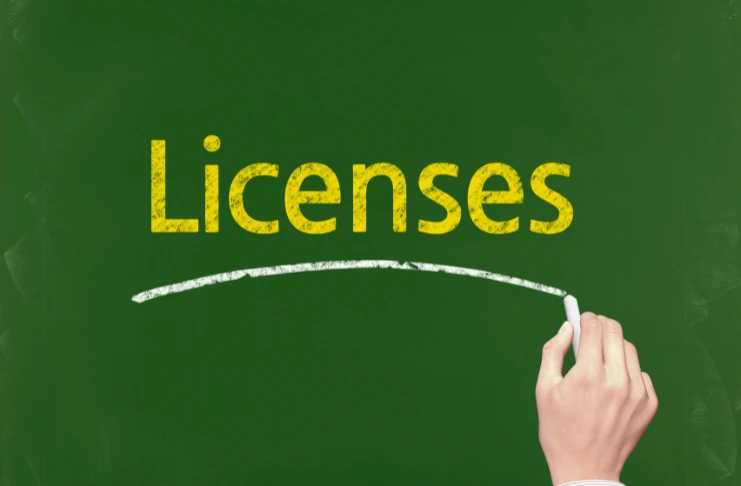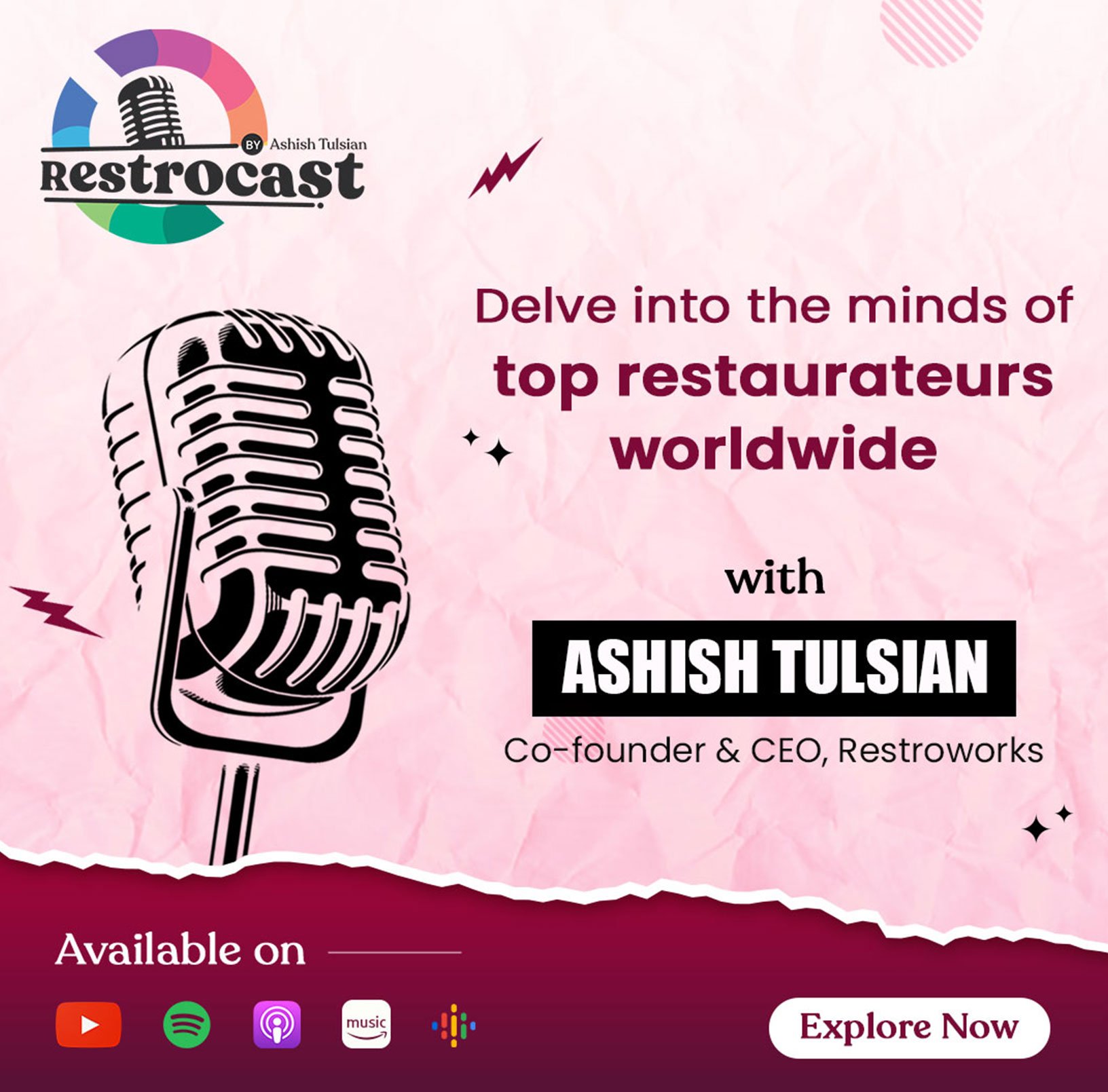
The rise of cloud kitchens—also known as ghost kitchens or virtual kitchens—is revolutionizing the food industry. These delivery-only restaurant models operate without dine-in space, focusing entirely on preparing food for online orders via third-party delivery apps or direct online ordering systems. With minimal overhead costs, flexible operations, and growing demand for food delivery, cloud kitchens have become one of the most profitable restaurant models in today’s digital-first world.
The restaurant market is especially ripe for cloud kitchen businesses. In 2025, the global cloud kitchen market generated approximately USD 81.94 billion in revenue and is expected to grow to about USD 201.72 billion by 2033, reflecting a projected CAGR of 11.92%.
However, launching a cloud kitchen isn’t as simple as cooking and delivering—proper registration, licenses, and compliance are essential for legal operations and long-term growth. In this blog, we’ll walk you through everything you need to know about how to register a cloud kitchen, ensuring you start on the right foot with all legal boxes checked.
1. Decide On The Legal Structure Of Your Cloud Kitchen Business
1.1 Common Business Structures
Before registering your cloud kitchen, choosing the right legal structure is crucial, as this affects your taxes, liability, funding options, and long-term scalability. In the U.S., the most common business structures include:
- Sole Proprietorship – Simple and low-cost, but offers no personal liability protection.
- Partnership – Shared ownership with a partner, ideal for joint ventures.
- Limited Liability Company (LLC) – A popular choice for cloud kitchens, offering flexibility and protection of personal assets. It protects owners from personal liability and offers notable tax advantages.
- Corporation (C-Corp or S-Corp) – Best suited for large-scale ventures seeking outside investment, but comes with more compliance requirements.
1.2 Choosing The Right Structure For Growth
For most food entrepreneurs, forming an LLC for a cloud kitchen is the most balanced approach—it protects personal assets and allows pass-through taxation. However, a corporation may be more suitable if you plan to scale quickly or attract investors.
1.3 How To Register Your Business With The State
Once you’ve selected a structure, you’ll need to register your business with the Secretary of State in the state where you’ll operate. This includes filing formation documents, paying a registration fee, and designating a registered agent. Be sure to check your state’s specific guidelines and timelines.
2. Choose And Register Your Business Name

2.1 Why Your Cloud Kitchen Name Matters
Your cloud kitchen business name is the first impression customers will have of your brand—it needs to be memorable, relevant, and legally available. A strong name helps build trust and brand recognition, especially in a crowded delivery-only market. Whether you’re launching a virtual restaurant brand or operating under a multi-brand cloud kitchen, your name should reflect your food style, audience, and values.
2.2 Check Name Availability
Before you fall in love with a name, verify its availability. Start by searching your state’s business name registry to ensure it’s not already taken. You should also check domain availability if you plan to set up an online ordering website for your cloud kitchen.
2.3 Registering A DBA (Doing Business As)
If your legal business name differs from your brand name, you’ll need to register a DBA (Doing Business As) with your county or state. This is common for cloud kitchens operating multiple virtual brands under one legal entity.
2.4 Trademark For Brand Protection
To protect your brand nationally, consider applying for a federal trademark through the United States Patent and Trademark Office (USPTO). This ensures no one else can use your brand name in the restaurant or food delivery space.
3. Obtain A Federal EIN (Employer Identification Number)
3.1 What Is An EIN And Why Do You Need One
An EIN (Employer Identification Number) is a unique 9-digit number issued by the Internal Revenue Service (IRS). It functions like a Social Security Number, but for your business. If you’re starting a cloud kitchen in the USA, getting an EIN is essential—even if you don’t plan to hire employees immediately.
You’ll need an EIN to:
- Open a business bank account
- File federal and state taxes
- Apply for business licenses and permits
- Register with third-party food delivery apps like DoorDash and Uber Eats
- Hire staff legally, if and when required
3.2 How To Apply For An EIN
Applying for an EIN is free and can be done in just a few minutes through the IRS website. Make sure you’ve already chosen your business structure before applying, as it will be required during the process.
Once submitted, you’ll receive your EIN immediately in most cases. Save this number securely—it’s used for almost every legal and financial process related to your cloud kitchen business.
4. Get A Business License For Your Cloud Kitchen

4.1 Why A Business License Is Essential
Before you start preparing orders, your cloud kitchen must be licensed to operate legally within your city or county. A business license is a basic legal requirement in the USA that grants you permission to conduct commercial activity. Operating without one could lead to fines, forced closures, or legal trouble.
Since cloud kitchens typically function in commercial spaces or shared commissaries, licensing helps local governments monitor safety, zoning, and compliance.
4.2 Where And How To Apply
Business license requirements vary by location. You’ll typically apply through your city or county clerk’s office or local business licensing department. Some states also require a state-level business license. Research highlights more information explaining a business license as follows:
INDUSTRY INSIGHT
“It is a government-issued license that is mandatory in the USA. Any restaurateur or cloud kitchen owner must seek this license in order to operate legally. It includes a registration fee of $50 and a license filing fee ranging from $25 to $500. It differs in different cities. To find out about your license department, Google and find out about the USA Small Business Administration (SBA)’s website for complete details. This license needs to be renewed annually”.
5. Apply For Food Service Licenses And Health Permits
5.1 Why Food Licenses Are Non-Negotiable
You must legally meet health and food safety regulations to operate a cloud kitchen. Unlike traditional restaurants, cloud kitchens are not visible to the public—making food safety and compliance even more critical to maintain customer trust and meet local law. Health departments nationwide treat ghost kitchens like any other food establishment, requiring strict inspection and certification.
5.2 Key Licenses You’ll Need
- Health Department Permit: Every commercial kitchen must pass an inspection by the local health department to obtain this permit. Inspectors will check for cleanliness, food handling protocols, refrigeration standards, and proper storage practices.
- Food Handler’s Permit or Certification: Required for anyone preparing or handling food. Many states accept ServSafe or similar certifications to prove that staff are trained in food safety.
- Food Facility Permit: If you’re renting space in a commissary or shared kitchen, the facility usually holds this. But you may still need your own permit depending on your operations and local requirements.
6. Zoning And Commercial Kitchen Approval
6.1 Why Zoning Laws Matter For Cloud Kitchens
Before setting up your cloud kitchen, it’s important to ensure your chosen location complies with zoning laws. Zoning regulations determine which types of businesses can operate in specific areas. Even if you’re not serving walk-in customers, your cloud kitchen is still considered a commercial food establishment and must meet zoning requirements for food production.
6.2 Choosing The Right Kitchen Space
You have two primary options when it comes to kitchen setup:
- Rent a Commissary or Shared Commercial Kitchen – Ideal for first-time operators or those testing multiple virtual brands. These kitchens are pre-approved, reducing your legal burden.
- Build Your Own Commercial Kitchen – Requires a space zoned for food production, commercial-grade equipment, and multiple inspections and permits.
6.3 How To Get Zoning Approval
Contact your local zoning office or planning department to confirm that your desired location is approved for commercial food use. If not, you may need to apply for a zoning variance or special use permit.
Also, check if a Certificate of Occupancy (CO) is needed to verify that the building complies with local building codes for food operations.
7. Register For Sales Tax Permits
7.1 Why Cloud Kitchens Need A Sales Tax Permit
If your cloud kitchen sells taxable food or beverages, you’re legally required to collect and remit sales tax. To do this, you must obtain a Sales Tax Permit—also known as a Seller’s Permit—from your state’s Department of Revenue. This registration allows you to legally charge tax on customer orders and ensures your business complies with state tax laws.
7.2 When Sales Tax Applies to Food
Sales tax laws vary by state. In some states, hot prepared foods are taxable while cold or packaged items may be exempt. Since cloud kitchens typically deliver ready-to-eat meals, most fall under taxable food service categories.
7.3 How to Apply
- Visit your state’s Department of Revenue website
- Fill out the online application for a Sales Tax Permit
- Provide your EIN, business name, and business address
- Approval usually takes a few days, and some states may charge a small registration fee
8. Comply With Food Delivery Regulations

8.1 Why Delivery Compliance Matters For Cloud Kitchens
As a delivery-only restaurant, your entire business relies on smooth partnerships with platforms like Uber Eats, DoorDash, Grubhub, and others. To list your cloud kitchen on these apps, you must meet specific compliance and documentation requirements. These regulations ensure food safety, order accuracy, and accountability for every delivery made from your kitchen to the customer’s door.
8.2 Documents Typically Required By Delivery Platforms
Each delivery platform may vary, but you’ll generally need to provide:
- A valid business license
- Proof of your commercial kitchen lease or commissary agreement
- Food service permits from the local health department
- EIN and tax information
- General liability insurance
- High-quality food and menu images
8.3 Understand Platform Agreements and Fees
Before signing up, review each platform’s commission structure and also understand service level expectations, refund policies, and the platform’s customer support process.
Many cloud kitchens also set up their own online ordering system to reduce third-party commissions and build direct customer relationships. If you go this route, ensure your site is mobile-friendly, secure, and easy to navigate.
9. Business Insurance For Cloud Kitchens
9.1 Protecting Your Cloud Kitchen From Risk
Running a cloud kitchen involves several moving parts—from food preparation and delivery to staffing and third-party partnerships. That’s why having the right business insurance is critical. It not only protects you from financial losses due to accidents, lawsuits, or equipment failure but also builds trust with delivery platforms, landlords, and suppliers—many of whom require proof of insurance before signing agreements.
9.2 Essential Insurance Policies For Cloud Kitchens
- General Liability Insurance
Covers claims related to third-party injuries, property damage, and advertising issues. It’s often required by landlords and delivery aggregators. - Product Liability Insurance
Protects you in case of food-related illness, contamination, or allergic reactions caused by your products. - Commercial Property Insurance
Covers damage or theft involving your kitchen equipment, inventory, or rented space. - Workers’ Compensation Insurance
Mandatory in most states if you hire employees. Covers medical expenses and lost wages due to workplace injuries. - Business Interruption Insurance
Helps recover lost income if your operations are halted due to an unforeseen event like a fire or power outage.
Conclusion
Starting a cloud kitchen is one of the smartest ways to enter the food business today. With the growing demand for online food delivery, low overhead costs, and flexible operations, this model offers huge potential. But to build a sustainable and legally compliant business, proper registration is non-negotiable.
Frequently Asked Questions
Yes, cloud kitchens are legal in the USA. Operators must comply with local health, safety, and zoning regulations and obtain required licenses and permits.
Cloud kitchens can earn profit margins between 7% and 25%, depending on order volume, efficiency, and operating costs.
Launching a cloud kitchen in Houston typically costs around $30,000, though costs vary based on location, size, and setup.
Starting a ghost kitchen can cost anywhere from $20,000 to $500,000, depending on equipment, space, and whether it’s shared or standalone.








